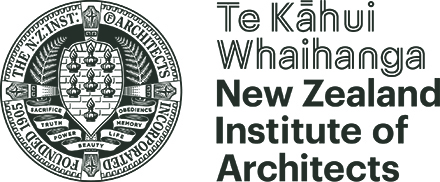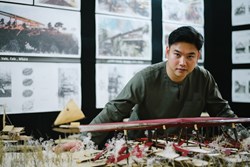Leo (Hongyu) Wang from Te Whare Wānanga o Wairaka, Unitec, School of Architecture is a finalist for his project 'Places in Time: Public Space Practices, for Dynamic Being in Rural China'.
Judges citation
An amazing capture of cultural dialogue and adaptive re-use in a Chinese village with broader applications beyond. This project showcases the ethos that the more abilities we have, the more responsibility to do something with them.
Project description
This project explores architectural interventions to create sustainable public cultural spaces in rural China, enhancing the dynamic relationship between people and architecture. Using Shuangzha Village in Tianjin municipality as a case study. It transforms abandoned structures and landscapes — a water tower, old clinic, sewage pond, and floating memorial — into vibrant places that reconnect villagers with local memory, ecology, and rituals. Guided by Heidegger’s philosophy of Temporal Being and the I Ching’s concepts of change, the design responds to both material and spiritual dimensions of rural transformation. The water tower becomes a Tower PlayLab for children’s play and education, the clinic a Villager Centre for gatherings, the sewage pond a Paddy Verse for rice culture and cafés, and the floating memorial a Soul Ferry for funeral rituals. Rather than formal participatory research, the approach draws on the author’s personal knowledge and informal conversations with villagers, emphasizing ecological integration and cultural continuity. Architecture is framed as an act of care, acknowledging fragility and expressing love for people and land. Water serves as a narrative thread, weaving connections among memory, use, and flow, ultimately proposing a rural regeneration model rooted in locality and attuned to change.








